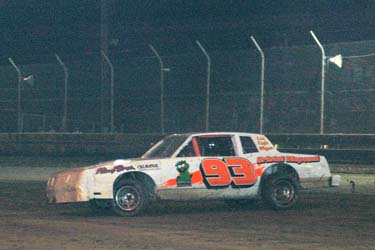A Definition of Liberalism
December 30, 2011 /

Contemporary Liberalism can be defined as the attempt to verify the proposition that reality is optional. Thomas Sowell provided the insight for that observation.
Bible Teacher, Pundit, Former Race Car Driver*

Contemporary Liberalism can be defined as the attempt to verify the proposition that reality is optional. Thomas Sowell provided the insight for that observation.
Ha! Sowell. So much for no kool aid…
You’ll have to explain that comment, Blake. “No Kool-Aid” doesn’t mean that I don’t quote from other people, or take inspiration from them, but simply that I don’t do it uncritically. So…?
Sowell’s a hack. From what I’ve heard his books are pretty good, but I haven’t read those. I’ve read his constant public presence: his columns. And his columns are pure right-wing kool aid. It may be red kool aid, but its kool aid nonetheless. And I ain’t drinking that.
I did read a name and jump to a conclusion, however. I don’t have a problem with you taking inspiration from him; I thought you offered up a a direct quote. I misread.
The hazards of skimming I’spose. Although a one-line definition of a complex political opponent given without explanation smacks of kool-aid…
I would reply, I suppose, that my quote is “a” definition of liberalism, not “the” definition, that there are many ways to approach and attempt to define this nefarious beast. Another one I offered a few years back suggested that liberalism is an attempt to deny accountability. In another place I referred to it (not so much defined it, I suppose, as described it) as a progressive disease. So I think that there are a lot of ways to describe/define contemporary liberalism.
As to Sowell, might I suggest you read some of his work. When I think of a “hack”, I think of someone who parrots the party line without reasoning—and of course there are folks of all political persuasions who do just that. Sowell doesn’t fit that description, it seems to me, because he takes the time to articulate his case, to reason (rather than merely emote) his way toward his conclusions. The Vision of the Anointedis a tremendous book, for instance. I would like to read his new work on economics as well.
One question with these definitions is- when did the left hijack the term “liberal” and use it to describe illiberal views?
The classic Victorian liberalism concentrated on personal freedom and the free market, and it is odd that there are people self-describing as liberals who hold positions totally opposite to genuine liberalism.
You’re exactly right, Graham. I would be happy to wear the mantle “classic liberal”, but for the fear that its modern-day corruption by what we today call “liberals” effectively ruins the term.
“a”, “the”, semantics? Really? Okay, if that’s the best you can do. 3 one liners smacking of talk-radio talking points are better than 1, I suppose. But really I’m just giving you a hard time. I’m kidding around, but often in text that’s hard to tell. I respect your opinion enough to take the time to comment here, so please know that I’m not always to be taken seriously. I do not mean to offend &, technically, you are correct. I haven’t had time to peruse all of your archives, but I have enjoyed what I’ve seen so far.
Based on your & others recommendations I’m going to crack a Sowell book soon. I’ve also heard “Affirmative Action Around the World” is quite good. Have you read that as well?
And I did take the time to look up some other columns to see if my opinion of him has changed since his big aviators became an instant “ignore-that-column” signifier in my little mind, but his columns are still, sometimes, absolute drivel. My most common complaint against him is his glib treatment of history & his constant use of bad straw-man arguments. And as long as we’re talking about hacks, check out this gem from the end of Sowell’s last Dec ’11 column: “With all his shortcomings, his [Newt Gingrich’s]record shows that he knows how to get the job done in Washington.”